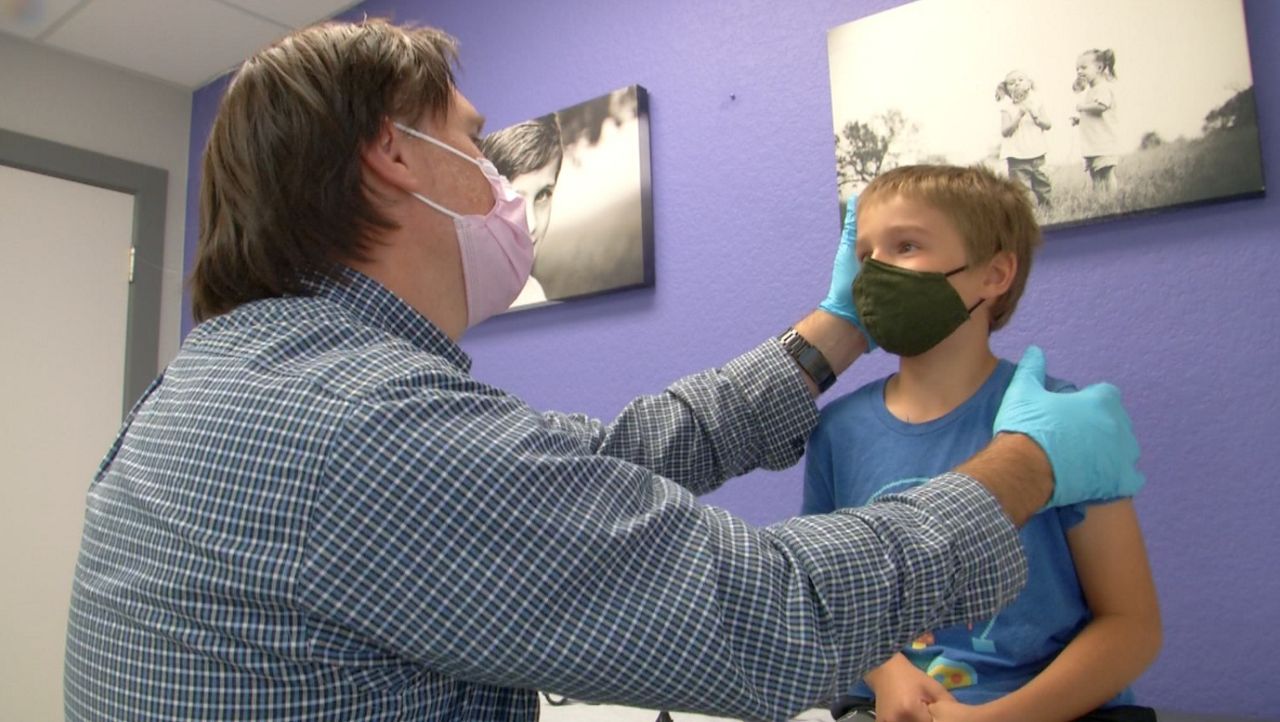Tobacco is still one of the top cash crops in North Carolina, but the state is receiving a failing grade by a major health advocate. The American Lung Association gave N.C. failing grades in four categories with the exception of a letter D grade for coverage and access to services to quit tobacco.
What You Need To Know
- The American Lung Association report on tobacco control shows poor protocols and procedures for curbing tobacco use
- Tobacco-related revenue generated more than $465 million in sales
- Funding for tobacco control was around $13 million
- Resident Michael Scott, a former smoker, attacks the issue with the Center for Black Health and Equity
- Natalie Thompson, region 5 tobacco prevention manager, is in position to address tobacco-related issues on a community level
State health leaders point to the grade D for coverage and access to services to quit tobacco as a result of Medicaid expansion.
The director of advocacy for the American Lung Association in North Carolina said the reality is tobacco remains the leading cause of preventable death and disease in the state.
“In North Carolina alone, it takes over 14,000 lives a year. Stronger tobacco policies strengthen (the safeguards for) youth not to start. The tobacco companies will put tons of profits at the expense of North Carolina towards getting young people hooked early,” Danna Thompson said.
The State of Tobacco Control report dives into major areas of improvement, including the following give areas:
- Funding for state tobacco prevention programs – Grade F
- Strength of smokefree workplace laws – Grade F
- Level of state tobacco taxes – Grade F
- Coverage and access to services to quit tobacco – Grade D
- Ending the sale of all flavored tobacco products – Grade F
Resident Michael Scott said he has seen what big tobacco continues to do in this state to draw in new and keep old customers.
As Scott walked through a Durham neighborhood, he pointed to a corner store near downtown with clear signage for tobacco products.
“Definitely have got the menthol advertisement,” Scott said. Scott, 52, has seen ads of all kinds on corners like this in Durham. He said they are targeted for a certain demographic tobacco companies know will get hooked.
“Every location is going to be slightly different but when we look at tobacco retailers in predominantly African American neighborhoods, predominantly low-income neighborhoods, you are going to see the same thing over and over again,” he said.
Scott is talking about marketing tactics for menthol cigarettes and other flavored tobacco goods within close proximity to homes where children may live.
“These are in areas where there are health disparities caused by these products,” Scott said. Scott isn’t new to this game of fixing public health, as a Black man and former smoker. He says his father died from lung cancer caused by smoking.
Scott's turning experience into expertise as the senior program manager for the Center for Black Health and Equity in Durham. As he navigated around neighborhoods in the Bull City, he delved into a bigger issue: North Carolina’s recent grade on tobacco control.
“If you are not going to do it for yourself, do it for your loved one. Do it for your mom, your dad, your family,” Scott said. The ALA report shows N.C. made more than $465 million in tobacco-related revenue in the last year, but spent only around $13 million on funding for tobacco control programs.“If you are not going to do it for yourself, do it for your loved one. Do it for your mom, your dad, your family,” Scott said. The ALA report shows N.C. made more than $465 million in tobacco-related revenue in the last year, but spent only around $13 million on funding for tobacco control programs.
It is ironic to Scott, considering he had trouble putting down the habit even after his father died.
“Which I think goes to show how strong of an addiction smoking really is," Scott said.
While there is much work to be done, Scott said there is room for optimism, and he is not willing to give up the fight.
“Because it does impact other people,” Scott said.
There are 10 regions for tobacco prevention across the state to work with local governments and public health agencies to make sure people have access to resources for cessation and more.
Natalie Thompson, the region 5 tobacco prevention manager, says she provides prevention and treatment and props up policies to eight counties, including Durham, Orange, Chatham, Alamance, Guilford, Rockingham, Caswell and Person.
“To make sure folks are getting screened for tobacco use, that they are being referred to our state quit line, which is a free resource for anybody who uses tobacco and wants to quit,” Thompson said.
The QuitlineNC, which is funded by the N.C. Department of Health and Human Services, offers free counseling, nicotine patches and gum.
One example of structuring policy is simply Thompson engaging and following up heads of agencies from these counties to ensure implementation of smoke-free laws in public spaces. Another is the work she does with various school districts, including meeting with student health advisory committees about problems with student vaping.
“Recommending some school-based programs, prevention programs like CATCH My Breath, alternatives to suspension programs,” she said. “I work with different entities to try to help them address tobacco from all different kinds of ways whether it is youth prevention in schools or whether it’s working here at the (Durham County) health department with (health) providers.
Thompson said she often works out of the Durham County Department of Public Health building to have as much direct access to and with providers to tackle the tobacco issues plaguing their communities.
She said erasing barriers to access these cessation and prevention initiatives to make sure no one is overlooked.
“I’m also doing a lot of work with behavioral health agencies because starting April 1, Medicaid will require all health and behavioral health agencies to implement a tobacco-free campus. That takes a lot of steps,” Thompson said.
Thompson also acknowledged the state may be doing better in some areas than it seems.
“The report that the American Lung Association does has really high standards,” Thompson said. “I really see the fact that we got a D in cessation, the increase in that grade as a huge win and that’s primarily due to Medicaid expansion. That’s allowed us to provide a lot more resources to folks in our state.” “The report that the American Lung Association does has really high standards,” Thompson said. “I really see the fact that we got a D in cessation, the increase in that grade as a huge win and that’s primarily due to Medicaid expansion. That’s allowed us to provide a lot more resources to folks in our state.”
One other project Thompson mentioned is a resolution signed by the Durham County Board of Health asking the General Assembly to pass a comprehensive tobacco state law to raise the minimum age of sale to 21 from 18 to match the federal law.
“In addition, a tobacco 21 law, a comprehensive one, would implement a tobacco retailer licensing system. We are one of the few states that don’t have that,” Thompson said.
Currently, you do not need a license in North Carolina to sell tobacco products.
“If we had a licensing system it would make it a lot easier to keep track of where these products are being sold and help to hold retailers accountable, as well as protect retailers who are doing the responsible thing," she said.
Thompson also believes that could help prevent youth access to these products.
“A big part of the job is working with school systems, working with educators, working with parents. A lot of folks who may be concerned about the what they're seeing in their communities with youth having access to vape products and bait devices. And just letting folks know about the free resources that are available,” Thompson said.








